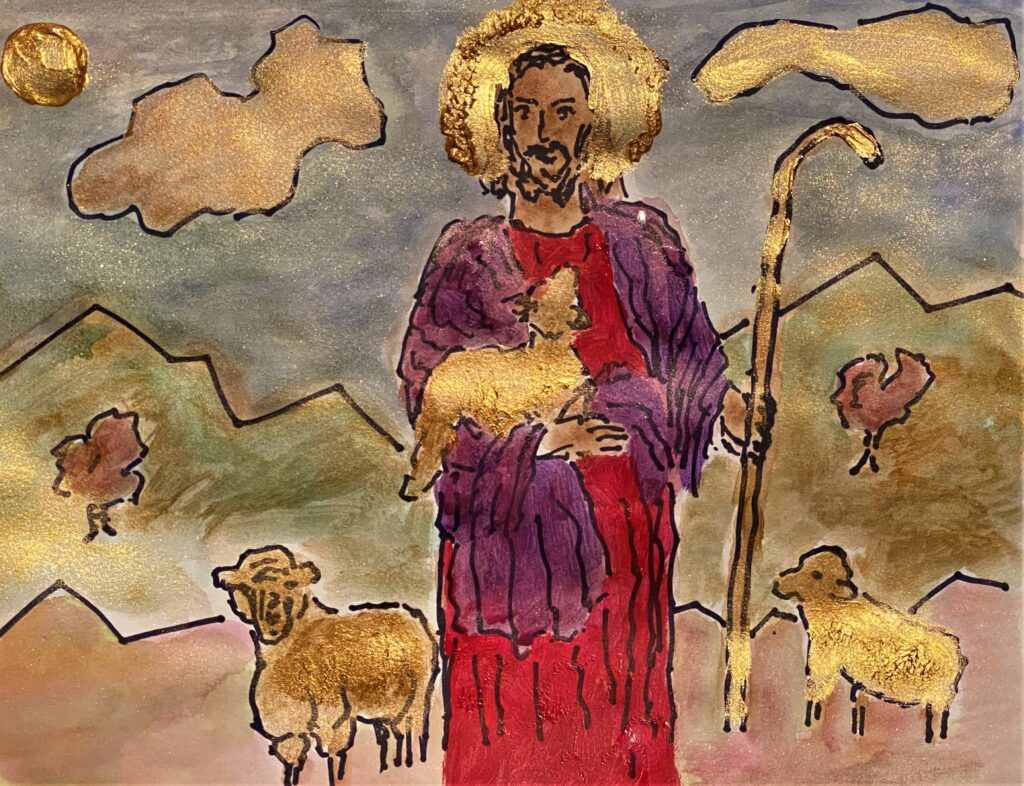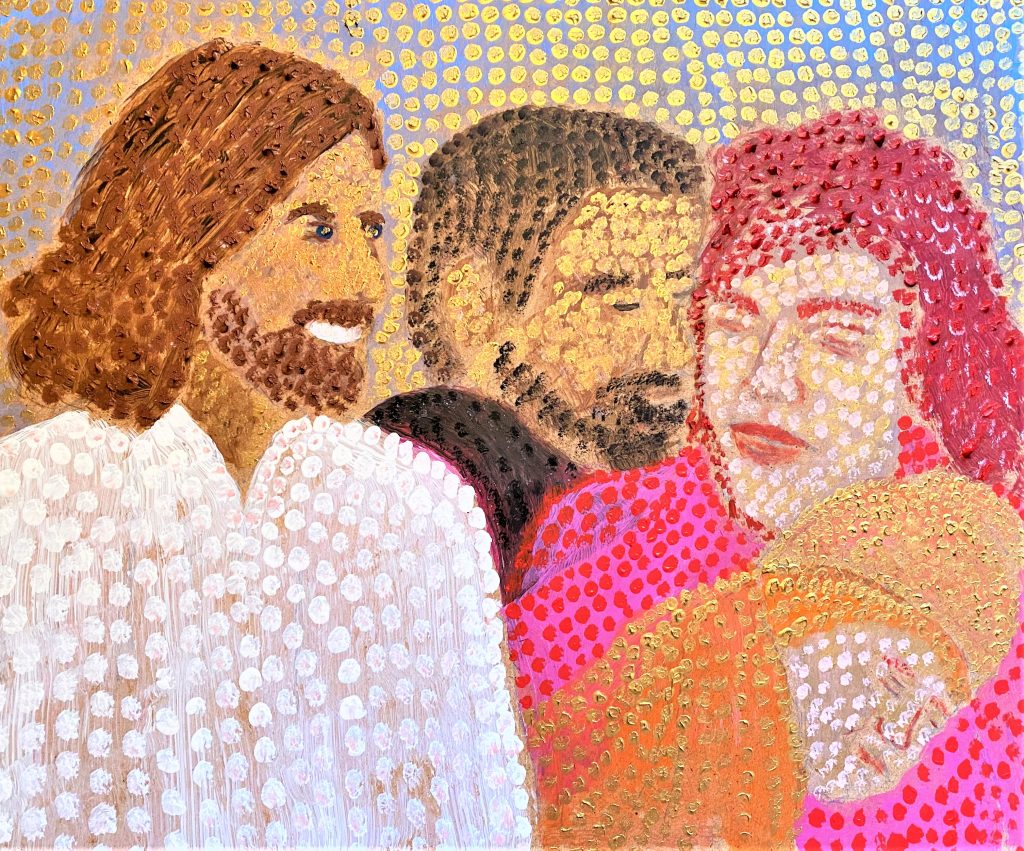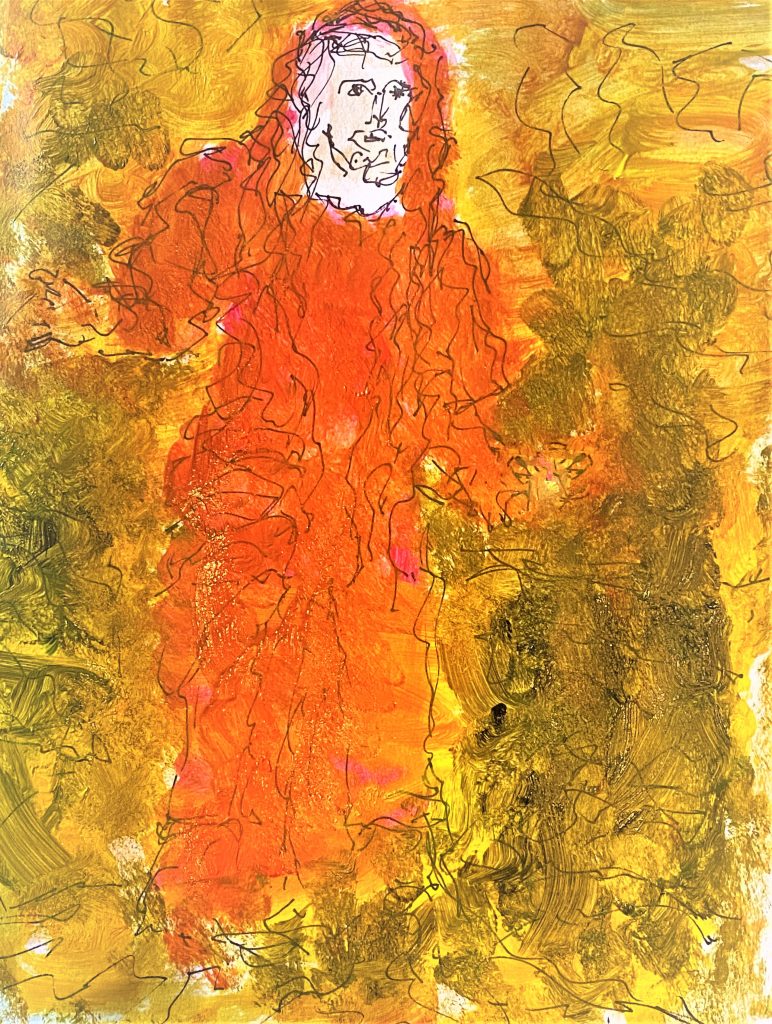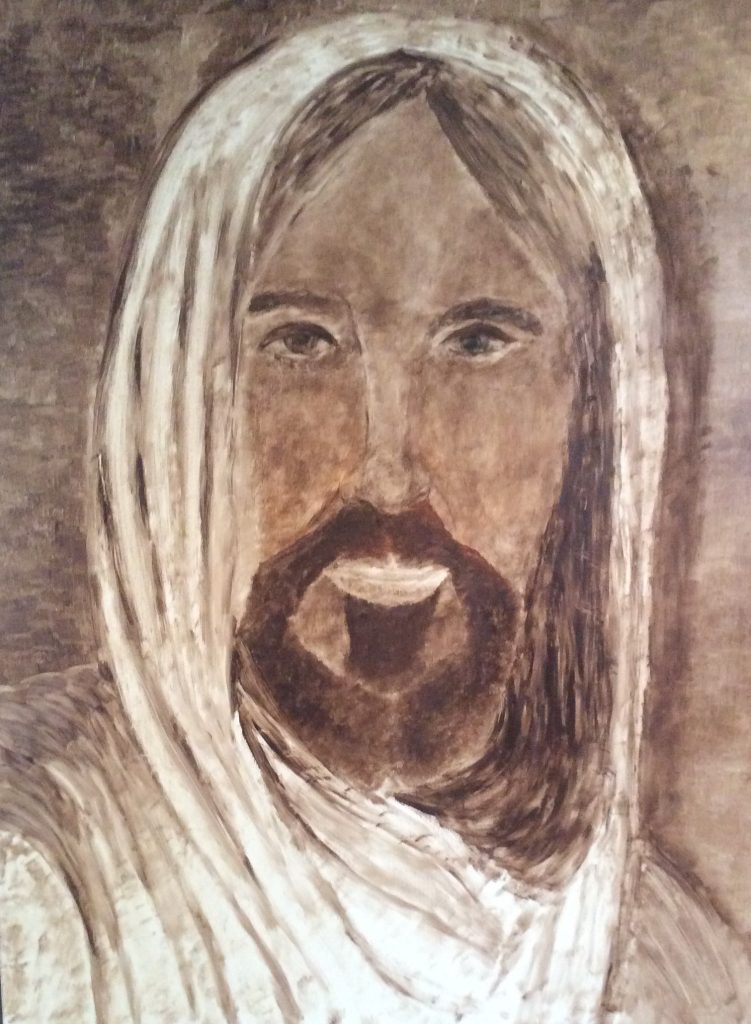- Question. What is faith in God the Father and God the Son and God the Holy Ghost?
- Answer. In the Lectures on Faith, it is defined and described as follows.
Faith Defined
LECTURE FIRST
1 Faith being the first principle in revealed religion, and the foundation of all righteousness, necessarily claims the first place in a course of lectures which are designed to unfold to the understanding the doctrine of Jesus Christ.
2 In presenting the subject of faith, we shall observe the following order:
3 First, Faith itself—what it is:
4 Secondly, The object on which it rests; and
5 Thirdly, The effects which flow from it.
6 Agreeably to this order we have first to show what faith is.
7 The author of the epistle to the Hebrews, in the eleventh chapter of that epistle, and first verse, gives the following definition of the word faith:
8 Now faith is the substance [assurance] of things hoped for, the evidence of things not seen.
9 From this we learn, that faith is the assurance which men have
of the existence of things
which they have not seen;
and the principle of action
in all intelligent beings.
10 If men were duly to consider themselves,
and turn their thoughts and reflections to the operations of their own minds,
they would readily discover that it is faith,
and faith only,
which is the moving cause of all action, in them;
that without it,
both mind and body would be in a state of inactivity,
and all their exertions would cease,
both physical and mental.
11 Were this class to go back and reflect upon the history of their lives,
from the period of their first recollection,
and ask themselves,
what principle excited them to action,
or what gave them energy and activity,
in all their lawful avocations, callings and pursuits,
what would be the answer?
Would it not be that it was the assurance which we had
of the existence of things
which we had not seen, as yet?
—Was it not the hope which you had,
in consequence of your belief in the existence of unseen things,
which stimulated you to action
and exertion,
in order to obtain them?
Are you not dependent on your faith,
or belief,
for the acquisition of all knowledge,
wisdom
and intelligence?
Would you exert yourselves
to obtain wisdom
and intelligence,
unless you did believe
that you could obtain them?
Would you have ever sown
if you had not believed that you would reap?
Would you have ever planted
if you had not believed that you would gather?
Would you have ever asked
unless you had believed
that you would receive?
Would you have ever sought
unless you had believed
that you would have found?
Or would you have ever knocked
unless you had believed
that it would have been opened unto you?
In a word, is there any thing that you would have done,
either physical
or mental,
if you had not previously believed?
Are not all your exertions,
of every kind,
dependent on your faith?
Or may we not ask,
what have you,
or what do you possess,
which you have not obtained
by reason of your faith?
Your food,
your raiment,
your lodgings,
[your properties,]
[your knowledge,]
[your talents,]
are they not all
by reason of your faith?
Reflect,
and ask yourselves,
if these things are not so.
Turn your thoughts on your own minds,
and see if faith
is not the moving cause
of all action
in yourselves;
and if the moving cause in you,
is it not in all other intelligent beings?
12 And as faith is the moving cause of all action in temporal concerns,
so it is in spiritual;
for the Savior has said,
and that truly,
that he that believeth
and is baptized,
shall be saved.
(Mark 16:16)
13 As we receive by faith,
all temporal blessings
that we do receive,
so we,
in like manner,
receive by faith
all spiritual blessings,
that we do receive.
But faith is not only the principle of action,
but of power, also,
in all intelligent beings,
whether in heaven,
or on earth.
Thus says the author of the epistle to the Hebrews. (11:3):
14 Through faith we understand that the worlds were framed by the word of God: so that things which are seen were not made of things which do appear.
15 By this we understand
that the principle of power,
which existed in the bosom of God,
by which the worlds were framed,
was faith;
and that it is by reason of this principle of power,
existing in the Deity,
that all created things exist
—so that all things
in heaven,
on earth,
or under the earth,
exist by reason of faith,
as it existed in HIM.
16 Had it not been for the principle of faith
the worlds would never have been framed,
neither would man have been formed of the dust
—it is the principle by which Jehovah works,
and through which he exercises power
over all temporal,
as well as eternal things.
Take this principle or attribute,
(for it is an attribute)
from the Deity
and he would cease to exist.
17 Who cannot see,
that if God framed the worlds by faith,
that it is by faith that he exercises power over them,
and that faith is the principle of power?
And that if the principle of power,
it must be so in man
as well as in the Deity?
This is the testimony
of all the sacred writers,
and the lesson which they have been endeavoring to teach to man.
18 The Savior says, (Matthew 17:19-20),
in explaining the reason
why the disciples could not cast out the devil,
that it was because of their unbelief:
“For verily, I say unto you,”
said he,
“if ye have faith
as a grain of mustard-seed,
ye shall say unto this mountain,
Remove hence to yonder place!
and it shall remove:
and nothing shall be impossible unto you.”
19 Moroni,
while abridging and compiling the record of his fathers,
has given us the following account of faith
as the principle of power:
He says, in Ether 12:13,
that it was the faith of Alma and Amulek which caused the walls of the prison to be wrent, as recorded in Alma 14:23-29;
it was the faith of Nephi and Lehi which caused a change to be wrought upon the hearts of the Lamanites, when they were immersed with the Holy Spirit, and with fire, as seen in Helaman 5:37-50;
and that it was by faith that the mountain Zerin was removed, when the brother of Jared spake in the name of the Lord. See also Ether 12:30.
20 In addition to this we are told in Hebrews, 11:32-35,
that Gideon,
Barak,
Samson,
Jephthah,
David,
Samuel,
and the prophets,
through faith
subdued kingdoms,
wrought righteousness,
obtained promises,
stopped the mouths of lions,
quenched the violence of fire,
escaped the edge of the sword,
out of weakness were made strong,
waxed valiant in fight,
turned to flight the armies of the aliens;
and that women received their dead raised to life again, etc.
21 Also, Joshua,
in the sight of all Israel,
bade the sun and moon to stand still,
and it was done. (Joshua 10:12)
22 We here understand,
that the sacred writers say,
that all these things were done by faith
—It was by faith that the worlds were framed
—God spake,
chaos heard,
and worlds came into order,
by reason of the faith there was in HIM.
So with man also
—he spake by faith
in the name of God,
and the sun stood still,
the moon obeyed,
mountains removed,
prisons fell,
lions’ mouths were closed,
the human heart lost its enmity,
fire its violence,
armies their power,
the sword its terror,
and death its dominion;
and all this by reason of the faith which was in them.
23 Had it not been for the faith
which was in man,
they might have spoken to the sun,
the moon,
the mountains,
prisons,
lions,
the human heart,
fire,
armies,
the sword,
or to death
in vain!
24 Faith, then,
is the first great governing principle
which has
power,
dominion,
and authority
over all things:
by it they exist,
by it they are upheld,
by it they are changed,
or by it they remain,
agreeably to the will of God.
Without it,
there is no power,
and without power
there could be no creation, nor existence!
QUESTIONS & ANSWERS ON THE FOREGOING PRINCIPLES
Question 1: What is theology?
It is that revealed science
which treats of the being and attributes of God,
his relations to us,
the dispensations of his providence,
his will with respect to our actions
and his purposes with respect to our end.
(Buck’s Theological Dictionary, page 582)
Question 2: What is the first principle in this revealed science?
Faith. (1:1)
Question 3: Why is faith the first principle in this revealed science?
Because it is the foundation of all righteousness.
Hebrews 11:6: Without faith it is impossible to please God.
1 John 3:7: Little children, let no man deceive you: he that doeth righteousness, is righteous, even as he [God] is righteous. (1:1)
Question 4: What arrangement should be followed in presenting the subject of faith?
First, Should be shown what faith is: (1:3)
Secondly, The object upon which it rests; and (1:4)
Thirdly, The effects which flow from it. (1:5)
Question 5: What is faith?
It is the assurance of things hoped for,
the evidence of things not seen:
Hebrews 11:1. That is, it is the assurance we have of the existence of unseen things.
And being the assurance which we have of the existence of unseen things,
must be the principle of action in all intelligent beings.
Hebrews 11:3: Through faith we understand the worlds were framed by the word of God. (1:8-9)
Question 6: How do you prove that faith is the principle of action in all intelligent beings?
First,
By duly considering the operations of my own mind;
and secondly,
by the direct declaration of scripture.
Hebrews 11:7: By faith Noah, being warned of things not seen as yet, moved with fear, prepared an ark to the saving of his house; by the which he condemned the world, and became heir of the righteousness which is by faith.
Hebrews 11:8: By faith Abraham, when he was called to go out into a place which he should after receive for an inheritance, obeyed; and he went out not knowing whither he went.
Hebrews 11:9: By faith he sojourned in the land of promise, as in a strange country, dwelling in tabernacles with Isaac and Jacob, the heirs with him of the same promise.
Hebrews 11:27: By faith Moses forsook Egypt, not fearing the wrath of the king: for he endured as seeing him who is invisible. (1:10-11)
Question 7: Is not faith the principle of action in spiritual things as well as in temporal?
It is.
Question 8: How do you prove it?
Hebrews 11:6: Without faith it is impossible to please God.
Mark 16:16: He that believeth and is baptized, shall be saved.
Rom. 4:16: Therefore, it is of faith, that it might be by grace; to the end the promise might be sure to all the seed: not to that only which is of the law, but to that also which is of the faith of Abraham, who is the father of us all. (1:12-13)
Question 9: Is faith any thing else beside the principle of action?
It is.
Question 10: What is it?
It is the principle of power, also (1:13)
Question 11: How do you prove it?
First, It is the principle of power in the Deity, as well as in man.
Hebrews 11:3: Through faith we understand
that the worlds were framed
by the word of God,
so that things which are seen
were not made of things which do appear. (1:14-16)
Secondly, It is the principle of power in man also.
Book of Mormon, Alma 14:23-29: Alma and Amulek are delivered from prison.
Helaman 5:37-50: Nephi and Lehi, with the Lamanites, are immersed with the Spirit.
Ether 12:30: The mountain Zerin, by the faith of the brother of Jared, is removed.
Joshua 10:12: Then spake Joshua to the Lord in the day when the Lord delivered up the Amorites before the children of Israel, and he said in the sight of Israel, Sun, stand thou still upon Gibeon, and thou Moon, in the valley of Ajalon.
Joshua 10:13: And the sun stood still, and the moon stayed, until the people had avenged themselves of their enemies.
Is not this written in the book of Jasher?
So the sun stood still in the midst of heaven, and hasted not to go down about a whole day.
Matthew 17:19: Then came the disciples to Jesus apart, and said, Why could not we cast him out?
Matthew 17:20: And Jesus said unto them, Because of your unbelief: for verily I say unto you, if ye have faith as a grain of mustard seed, ye shall say unto this mountain, Remove hence to yonder place; and it shall remove; and nothing shall be impossible unto you.
Hebrews 11:32 and the following verses: And what shall I more say? for the time would fail me to tell of Gideon, and of Barak, and of Samson, and of Jephthah, of David also, and Samuel, and of the prophets: who through faith subdued kingdoms, wrought righteousness, obtained promises, stopped the mouths of lions, quenched the violence of fire, escaped the edge of the sword, out of weakness were made strong, waxed valiant in fight, turned to flight the armies of the aliens.
Women received their dead raised to life again,
and other were tortured,
not accepting deliverance;
that they might obtain a better resurrection. (1:16-22)
Question 12: How would you define faith in its most unlimited sense?
It is the first great governing principle,
which has power, dominion, and authority over all things. (1:24)
Question 13: How do you convey to the understanding more clearly, that faith is the first great governing principle, which has
power,
dominion
and authority
over all things?
By it they exist,
by it they are upheld,
by it they are changed,
or by it they remain,
agreeably to the will of God;
and without it there is no power;
and without power
there could be no creation,
nor existence! (1:24)
Views: 120







